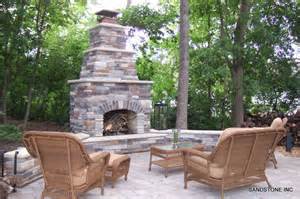
What do you want to be when you grow up? Do you enjoy driving, possess a lot of patience and are safety oriented? Are you a self-starter with a good work ethic? Are you in good physical condition and are drug/alcohol free? Do you have a clean driving record? If you answered yes to these questions, you might want to consider the Commercial Truck Driving Technology program at Hinds Community College!
The Commercial Truck Driving program is designed for the student with no commercial driving experience. Our 4-week semester offers quality classroom, behind the wheel road and range instruction with an emphasis on driver safety. Graduation from this program will result in the student receiving a Commercial Driver’s License (CDL) and a Career Certificate from Hinds Community College. Graduates will also find entry level employment as a commercial truck driver. Our goals are to advance truck driver training, proficiency and professionalism and to put quality drivers on the road.
What About The Job Forecast?
According to the Bureau of Labor Statistics, employment of tractor-trailer truck drivers is projected to grow 11% through 2022. An increase in truck drivers will be needed to keep supply chains moving as the economy grows. Trucks transport most of the freight in the United States. Truck drivers with hazardous material endorsements will increase their marketability and improve their job prospects considerably.
Students will find the Commercial Truck Driving program to be reliable and thorough training ground for employment in the transportation field. The program has an excellent reputation with local firms looking for highly trained drivers and placement of students who complete the program is a top priority. Typical job placement in this field can be found with fleet distribution and sales. KLLM Driving Academy will offer employment opportunities to students who successfully complete the requirements for graduation and intend to commit to 12 months of employment. The commitment of 12 months of employment does not apply to “refresher” drivers.

What Commercial Truck Drivers Do?
The trucking industry provides an essential service to the American economy by transporting large quantities of raw materials, works in process, and finished goods over land typically from manufacturing plants to retail distribution centers. Trucks in America are responsible for the majority of freight movement over land, and are vital tools in the manufacturing, transportation and warehousing industries. Over 80% of all communities in the U.S. rely exclusively on trucks to deliver all of their fuel, clothing, medicine, and other consumer goods. The trucking industry employs 10 million people (out of a total national population of 300 million) in jobs that relate directly to trucking.
Like many other industries, the trucking industry has benefited from the use of computers and the Internet. The Internet helps firms explore new opportunities by aggressive sales and marketing. The incremental cost of conducting business transactions on the Internet is as much as fifteen times less expensive than paper transactions. Developments in satellite technology have fostered increased communication and productivity. This allows drivers to communicate with their dispatcher from the truck. The driver inputs the information, using a keyboard, into an automated system of pre-formatted messages known as macros. There are macros for each stage of the loading and unloading process, such as “loaded and rolling” and “arrive at shipper”. This system also allows the company to track the driver’s fuel usage, speed, gear optimization, engine idle time, location, direction of travel and amount of time spent driving. Drivers are no longer required to find the nearest public phone in order to relay information regarding their load status; it can be done without leaving the truck cab.
Truck and trailer drivers typically do the following:
- Drive long distances
- Report to a dispatcher any incidents encountered on the road
- Follow all applicable traffic laws
- Inspect their trailer before and after the trip, and record any defects they find
- Keep a log of their activities
- Report serious mechanical problems to the appropriate personnel
- Keep their truck and associated equipment clean and in good working order
Admission Procedures:
- All new and returning students who did not attend Hinds Community College during the last regular semester must submit a completed HCC Admission Application.
- Official Transcripts are those transcripts that come directly from the high school, college, or GED office to the Admissions Office. These transcripts should be mailed or hand delivered in a sealed envelope and must not be stamped “issued to student.” Official transcripts must bear the signature of the appropriate school official, the institution’s seal, and a graduation date if applicable. The District Admissions office will assist you with obtaining Mississippi GED transcripts.
- Official ACT scores are those scores that are supplied on the official transcript, supplied electronically by the testing company, or the original score results may be brought to the Admissions Office for copying by Admissions staff.
- Any student who does not have ACT scores must take an entrance exam.
- If a student did not meet the requirements for High School graduation, he can still be admitted into the program as a “Vocational Only” student.
- If a student is entering Hinds as a College Transfer and was placed in an English and Math class, test scores are not required.
- Any student who begins at Hinds Fall 2007 or later MUST successfully complete RST 1312 Orientation, in order to meet graduation requirements. The course is designed to help students succeed and to be financially responsible citizens.
Admission Requirements:
- At least 21 years of age or older.
- Take an entrance test.
- Must possess a valid driver’s license.
- Must have the ability to pass a Department of Transportation physical in accordance with 391.41 of the Federal Motor Carrier Safety Regulations. Students will be given a D.O.T. physical prior to operating any commercial vehicles.
- Must certify they are drug free. All students will be drug tested in accordance with 382.301 of the Federal Motor Carrier Safety Regulations prior to operating any commercial vehicles.
- Must meet Department of Transportation and KLLM requirements for employment.
Need More Information?
This program is located at the KLLM Driver Academy campus of Hinds Community College. For more information on the Commercial Truck Technology program, contact Kathy Emrick at 601.857. 3337 or Randy Dennis at 601.857.3341 or call KLLM at 800.925.5556.


















